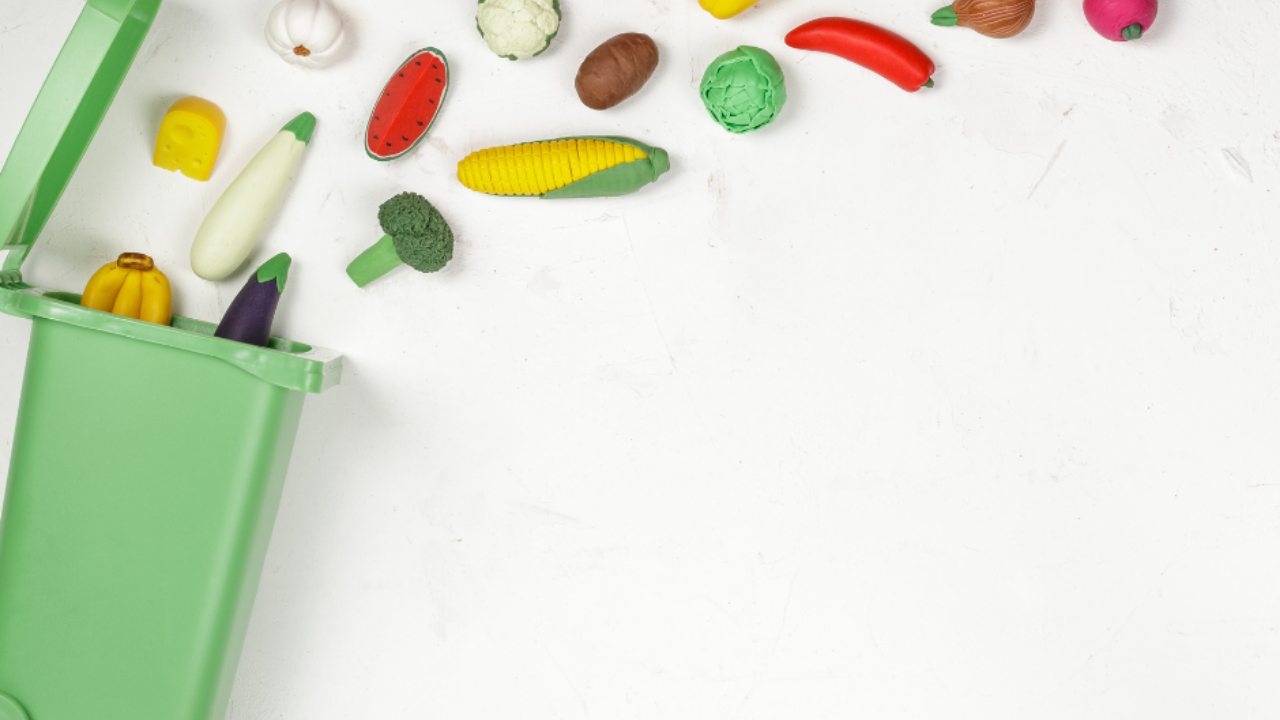7 Ways to Reduce Food Waste
Jun 12, 2023
If you’ve ever tossed out a container of yogurt that’s approaching its date, discarded veggies that have gone limp, or thrown out a salad that’s just starting to turn a bit brown around the edges, you’re not alone.
Food waste is a significant issue, particularly in the United States.
Not-so-fun-fact: food occupies more landfill space than any other waste category. Approximately 40% of the entire U.S. food supply goes to waste, equivalent to nearly 20 pounds of food per person each month.
But don’t you worry because I've got some amazing tips to share that will not only boost your health but also save you precious time and hard-earned money.
The Benefits of Reducing Food Waste:
Save time: Leftovers may not be the most glamorous meals, but they allow you to cook/buy once and eat twice. This uses your precious time more efficiently because you’re not making a huge effort to decide what new meal or snack to make, and then spending even more time preparing and/or shopping.
Plus, if you’re like me, spending less energy on multiple new meals every day means less stress
Save money: You probably don’t want to spend your hard-earned cash on something you’re not going to use—even when it comes to buying food. The amount of produce wasted by an average American family of four costs about $1,600 per year. Imagine what you could do with that amount of money by simply buying only what you need and are going to eat, without unnecessary excess.
Save the environment: Reducing food waste helps us use critical resources like our land, water, fertilizers, packaging, transportation, and storage much more efficiently, helping to reduce the environmental impact.
It’s true that food is wasted at every level from farm to fork.
Reducing your own food waste can have a substantial impact since household food waste accounts for the largest portion (43%) of total food waste, surpassing the combined waste from restaurants, grocery stores, and food service companies.
- Freeze food and enjoy your leftovers: Leftovers can also save you time and money when you’re super-busy because you can quickly take a meal out of the fridge or freezer instead of spending the time and money to prepare or buy a whole new meal.
- Know your dates: One of the biggest reasons people throw away food is because they think it’s spoiled. In an effort to reduce confusion, the U.S. FDA is recommending the use of:
● “Best if used by” to describe the quality of the food (not its safety); the food may not taste or perform as expected but it’s still safe to consume as long as it was stored properly.
● “Expires on” is mostly reserved for infant formulas which should not be used beyond that date. - Try “imperfect” or “ugly” food: Did you know that food is sometimes dumped because it doesn’t look “perfect” enough? Looking for “imperfect” or “ugly” food, or food that’s approaching its “Best if used by” date, is another way to save money and reduce food waste.
- Try a Food Exchange: If you know someone who would love to join you for a meal or appreciate your leftovers afterward, consider sharing with them. Some workplaces do fun food swap days where individuals bring in their leftovers and they swap. No food waste and you get to try out some fresh new meals!
- Compost: The U.S. EPA estimates that just 4.1 percent of wasted food is composted, so composting is a huge area of opportunity. If you have a backyard and ability to compost food scraps to make nutrient-rich soil, that is a great place to start. Alternatively, if your city, town, or region has a composting program, you can contribute to that instead of putting food waste into the garbage which goes to the landfill.
- Meal planning: Having a plan for your meals—whether you make the plan yourself or invest in one that works for you—is a great way to reduce your food waste, because when your meals are planned out, you can create a grocery list of the foods you need for that plan. Meal planning has other benefits beyond reducing food waste and saving you time and money. Using meal plans can help you create meaningful and sustainable changes for your health.
- Stick to the List: When you plan out the meals you want to eat and stick to your grocery list, you’re less likely to purchase and make too much food. If you double-check your pantry, fridge, and freezer before adding something to your grocery list, and stick to the list when you’re out shopping, you will buy only what you need and are planning to eat.
A practical solution for tackling food waste that you can implement today . . . utilizing a meal plan! Check out my meal planning bundles and save time and effort in the kitchen while making a positive global impact.
Stay connected with news and updates!
Join our mailing list to receive the latest news and updates from our team.
Don't worry, your information will not be shared.
We hate SPAM. We will never sell your information, for any reason.

